The aim of the lesson:
Continue shaping the skills in using lexis on the theme “health” and new theme “adverbs of frequency”.
The objectives:
Training: to develop spoken speech, skills in reading, understanding the text, using lexis.
Brining up:
To teach to take care of own health using adverbs
Visual aids and materials: an interactive board, pictures, charts, projects,
Procedure:
- Organization moment.
Good afternoon, dear pupils and our guests! Welcome to our lesson.
Warm- up:
Clap, clap, clap your hands
Today we shall see the results of your knowledge about health which we have known from our previous lesson. And today’s new theme is adverbs of frequency.
Before starting new theme let’s check up your home task. Your home task was exercise 6 on page 108. The text about the “Health Farm”. You must find the new words from the text which we repeated. They are:
Teenagers- жас?спірімдер
Weight- салма?
Pоcket of biscuits- ?алтада?ы печенье
Changing the TV- теледидарда?ы арналарды ауыстыру
Diet- диета
Worried- мазасызды?
Depressed- т?нжыра??ы
Confidence- сенім, батылды?
Exercise 6 p 108 Health farm
- “Thousands of teenagers are overweight,’’ says Health Farm manager Mr. White, “Many teenagers often do not know how to eat well and stay healthy, like Karen.”
- Karen was 13 years old.She weighed 80 kilos and was 1.55cm tall. Karen usually had a large bowl of cereal for breakfast. At school she always had fried chicken and chips every lunch time. In the evening Karen usually had more fried food and she often ate a packet of biscuits or a box of chocolates in front of the television. Karen never ate any fruit and she rarely had fresh vegetables. Her main exercise was chaining the TV channel or opening the fridge.
- Health Farm helped Karen with her diet and exercise plan. She now eats lots of fresh fruit and vegetables and goes swimming regularly. She never did any sport before because she was always so worried about her size. She now weighs 60 kilos and is still losing weight.
- Mr. White says, “Teenagers often come to the Farm depressed and with very little confidence. When they leave us they are usually happier and much more confident about themselves.”
T: OK. Thank you very much. Let’s start our lesson. First of all, let’s divide the pupils into three groups.
- Eagles
- Sun
- Friendship
Today’s lesson is devoted to one of the important part of speech- adverbs of frequency. First off all I’ll explain you What is the adverb? How to use them? Where to use them?
III) Presentation : Adverbs
According to their meaning adverbs are subdivided into adverbs of time, adverbs of place, adverbs of repetitions and frequency, adverbs of degree and adverbs of manner. But today we will speak about the adverbs of frequency.
Adverbs of frequency:
usually, sometimes, often, rarely, seldom, never
Adverbs describe verbs. They show us how, how often, when someone does something.
Adverbs usually go after verbs.
E.g. I usually wake up at 8 o’clock
E.g. I never have a breakfast without my sister.
Position of adverb:
- Usually, always, never, sometimes, often, rarely
- ?детте б?л ?стеулер ма?ыналы? етістікті? алдында ?олданылады.
- E.g. I usually get up at 7 o’clock.
- I don’t often go to the cinema.
- She never eats bananas.
- We always watch TV in the evenings.
- I sometimes go swimming.
- Sometimes ж?не usually с?йлемні? басында ж?не со?ында ?олданы
- E.g. Sometimes I play tennis.
- Б?л ?стеулер ?р?ашан to be етістігінен кейін ?олданылады.
E.g. I am never late.
Exercise 12 p 110.
Put the adverbs in brackets into the correct place in the sentences
Overweight teenagers eat the wrong kind of food.(usually)
- They are depressed about their weight(often)
- They eat fresh fruit and vegetables.(rarely)
- Helen ate fruit when she was younger(never)
- She bought chocolate at break time(always)
- Do you eat the wrong kind of food(sometimes)
Exercise 13. Answer the questions.1
Do you have breakfast?
Always
Usually
Sometimes
Never
Are you careful about what you eat and drink?
Always
Usually
Sometimes
Never
How often do you weigh yourself?
Always
Usually
Sometimes
Never
How often do you do exercises?
Always
Usually
Sometimes
Let’s havea rest.
Exercise 1 p 190
Put the words in the correct order to make sentences
Always/ France / to/ go / we / spring/ i
e.g. We always go to the France in spring
- never/ coffee/ my/ drinks/ brother
_______________________________________
- Late / Jack / often/ is
_______________________________________
- to/ cinema/ seldom/ the/ they / go
_______________________________________
- sometimes/ me/ phones Betty
________________________________________
- home/ usually/ at/ they/ 9/ at/ are
_______________________________________
Pick up Two - Adverbs of Frequency
Matching game.
Beginnings Endings
They usually go abroad ..her friends after work.
Jennie usually meets. .the radio
We seldom listen to .for their summer holiday
Sam sometimes plays. .a T-shirt and shorts.
He never has. .leaves at 8 o’clock.
My wife and I always watch. .a movie at the weekend.
He always wears. .eggs for breakfast.
The bus usually. .badminton on Sundays.
Make up a sentences using the adverbs of frequency
VIII) Conclusion:
What must/ mustn’t we do to keep health?
The lesson is over. Good- bye.
Просмотр содержимого документа
«ашык сабақ жоспары»


The open lesson
Theme: Adverbs of frequency
The aim of the lesson:
Continue shaping the skills in using lexis on the theme “health” and new theme “adverbs of frequency”.
The objectives:
Training: to develop spoken speech, skills in reading, understanding the text, using lexis.
Brining up:
To teach to take care of own health using adverbs
Visual aids and materials: an interactive board, pictures, charts, projects,
Procedure:
Organization moment.
Good afternoon, dear pupils and our guests! Welcome to our lesson.
Warm- up:
Clap, clap, clap your hands
Clap, clap, clap your hands together.
Stamp, stamp, stamp your feet,
Stamp, stamp, stamp your feet together.
Dance, dance, dance you dance,
Dance you dance together.
Checking up the home task
Today we shall see the results of your knowledge about health which we have known from our previous lesson. And today’s new theme is adverbs of frequency.
Before starting new theme let’s check up your home task. Your home task was exercise 6 on page 108. The text about the “Health Farm”. You must find the new words from the text which we repeated. They are:
Teenagers- жасөспірімдер
Weight- салмақ
Pоcket of biscuits- қалтадағы печенье
Changing the TV- теледидардағы арналарды ауыстыру
Diet- диета
Worried- мазасыздық
Depressed- тұнжыраңқы
Confidence- сенім, батылдық
Exercise 6 p 108 Health farm
“Thousands of teenagers are overweight,’’ says Health Farm manager Mr. White, “Many teenagers often do not know how to eat well and stay healthy, like Karen.”
Karen was 13 years old .She weighed 80 kilos and was 1.55cm tall. Karen usually had a large bowl of cereal for breakfast. At school she always had fried chicken and chips every lunch time. In the evening Karen usually had more fried food and she often ate a packet of biscuits or a box of chocolates in front of the television. Karen never ate any fruit and she rarely had fresh vegetables. Her main exercise was chaining the TV channel or opening the fridge.
Health Farm helped Karen with her diet and exercise plan. She now eats lots of fresh fruit and vegetables and goes swimming regularly. She never did any sport before because she was always so worried about her size. She now weighs 60 kilos and is still losing weight.
Mr. White says, “Teenagers often come to the Farm depressed and with very little confidence. When they leave us they are usually happier and much more confident about themselves.”
T: OK. Thank you very much. Let’s start our lesson. First of all, let’s divide the pupils into three groups.
Eagles
Sun
Friendship
Today’s lesson is devoted to one of the important part of speech- adverbs of frequency. First off all I’ll explain you What is the adverb? How to use them? Where to use them?
III) Presentation : Adverbs
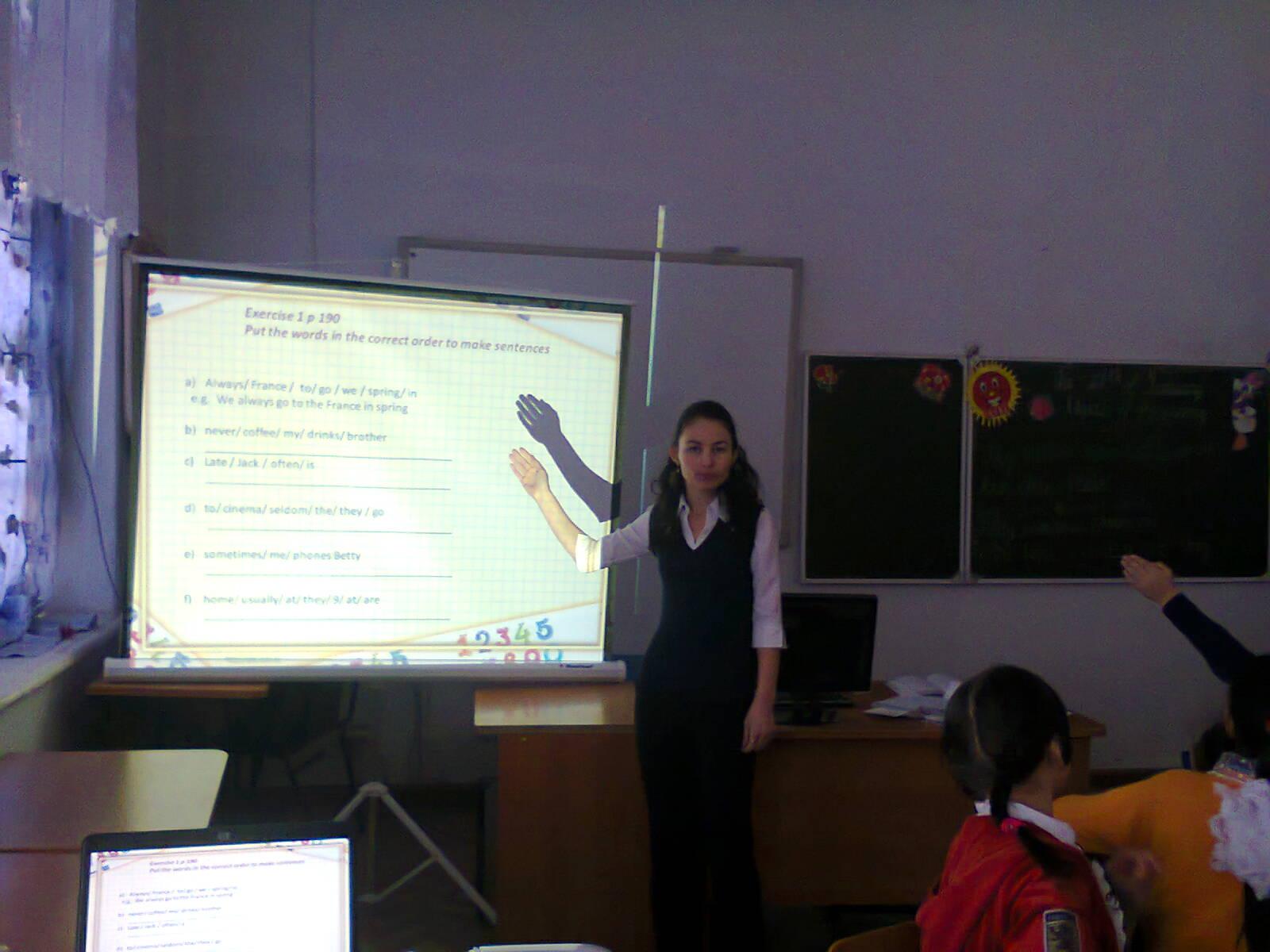
According to their meaning adverbs are subdivided into adverbs of time, adverbs of place, adverbs of repetitions and frequency, adverbs of degree and adverbs of manner. But today we will speak about the adverbs of frequency.
Adverbs of frequency:
usually, sometimes, often, rarely, seldom, never
Adverbs describe verbs. They show us how, how often, when someone does something.
Adverbs usually go after verbs.
E.g. I usually wake up at 8 o’clock
Мен әдетте таңғы асымды сағат 8 де ішемін.
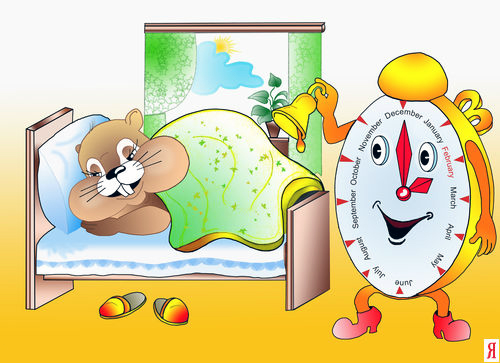
E.g. I never have a breakfast without my sister.
Мен ешқашан таңғы асымды сіңілімсіз ішпеймін.

Adverbs of frequency tell us how often something happens:
These are: Always- (100%) - әрқашан
Usually- (75%)- әдетте
Often- (50%) - Жиі
Sometimes- (25%)- кейде
Seldom- (10%)- анда- санда
Never- (0%)- ешқашан
Position of adverb:
Usually, always, never, sometimes, often, rarely
Әдетте бұл үстеулер мағыналық етістіктің алдында қолданылады.
E.g. I usually get up at 7 o’clock.
I don’t often go to the cinema.
She never eats bananas.
We always watch TV in the evenings.
I sometimes go swimming.
Sometimes және usually сөйлемнің басында және соңында қолданы
E.g. Sometimes I play tennis.
Бұл үстеулер әрқашан to be етістігінен кейін қолданылады.
E.g. I am never late.
Exercise 12 p 110.
Put the adverbs in brackets into the correct place in the sentences
Overweight teenagers eat the wrong kind of food.(usually)
They are depressed about their weight(often)
They eat fresh fruit and vegetables.(rarely)
Helen ate fruit when she was younger(never)
She bought chocolate at break time(always)
Do you eat the wrong kind of food(sometimes)
Exercise 13. Answer the questions.
| 1 | Do you have breakfast? | Always | Usually | Sometimes | Never |
|
| 2 | Are you careful about what you eat and drink? | Always | Usually | Sometimes | Never |
| 3 | How often do you weigh yourself? | Always | Usually | Sometimes | Never |
| 4 | How often do you do exercises? | Always | Usually | Sometimes | Never |
Have a rest.
Let’s rest.

Exercise 1 p 190
Put the words in the correct order to make sentences
Always/ France / to/ go / we / spring/ i
e.g. We always go to the France in spring
never/ coffee/ my/ drinks/ brother
_______________________________________
Late / Jack / often/ is
_______________________________________
to/ cinema/ seldom/ the/ they / go
_______________________________________
sometimes/ me/ phones Betty
________________________________________
home/ usually/ at/ they/ 9/ at/ are
_______________________________________

Pick up Two - Adverbs of Frequency
Matching game.
Beginnings Endings
They usually go abroad . ...her friends after work.
Jennie usually meets... ...the radio
We seldom listen to ...for their summer holiday
Sam sometimes plays... ...a T-shirt and shorts.
He never has... ..leaves at 8 o’clock.
My wife and I always watch... ...a movie at the weekend.
He always wears... ...eggs for breakfast.
The bus usually... ...badminton on Sundays.
Make up a sentences using the adverbs of frequency







VIII) Conclusion:
What must/ mustn’t we do to keep health?
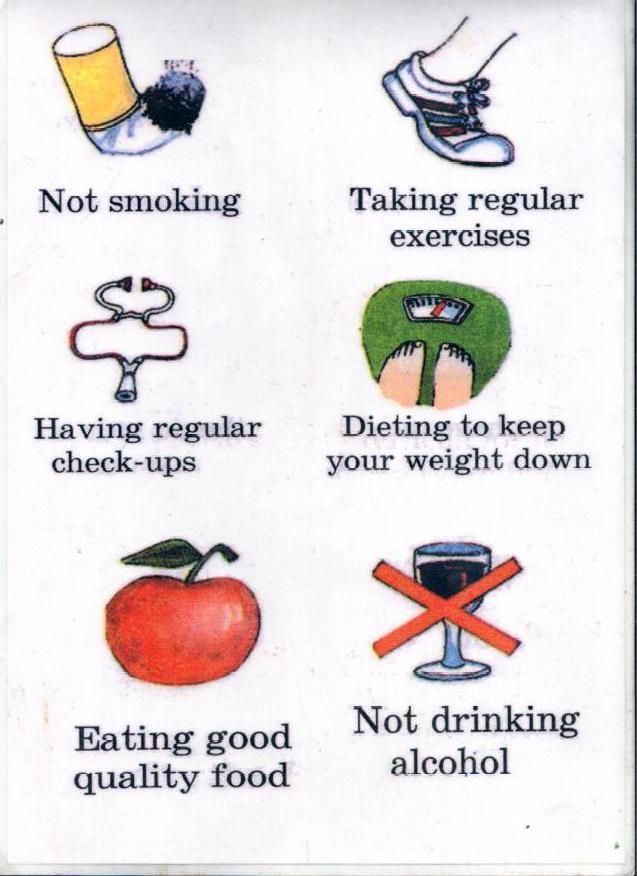
The lesson is over. Good- bye.

4
Просмотр содержимого презентации
«сабақ презентациясы»
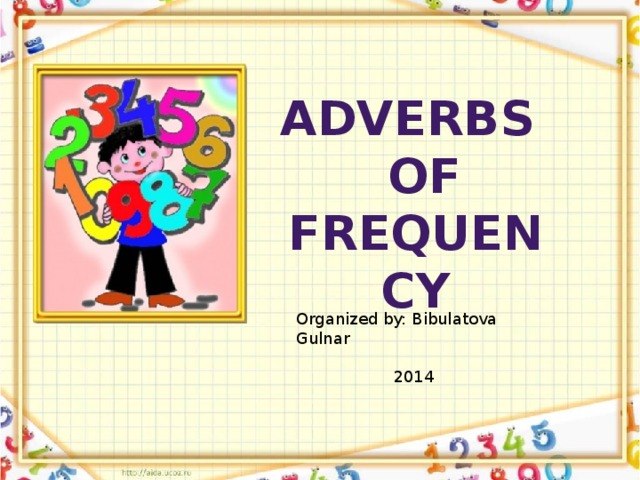
Adverbs
of frequency
Organized by: Bibulatova Gulnar
2014
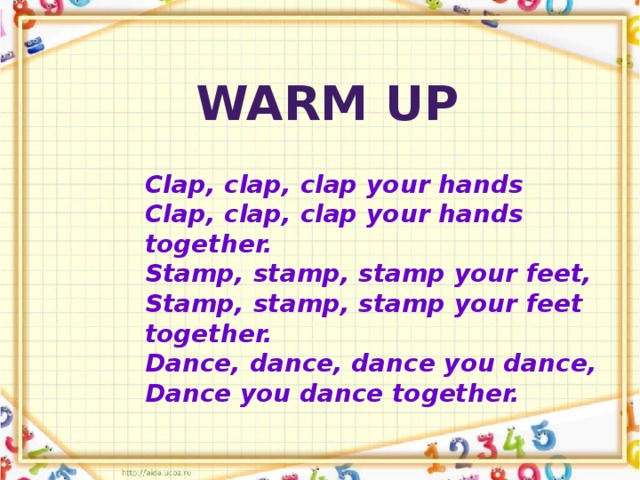
Warm up
Clap, clap, clap your hands
Clap, clap, clap your hands together.
Stamp, stamp, stamp your feet,
Stamp, stamp, stamp your feet together.
Dance, dance, dance you dance,
Dance you dance together.

Home task
New words
- Teenagers- жасөспірімдер
- Weight- салмақ
- Pоcket of biscuits- қалтадағы печенье
- Changing the TV- теледидардың арналарын ауыстыру
- Diet- диета
- Worried- мазасыздық
- Depressed- тұнжыраңқы
- Confidence- сенім, батылдық
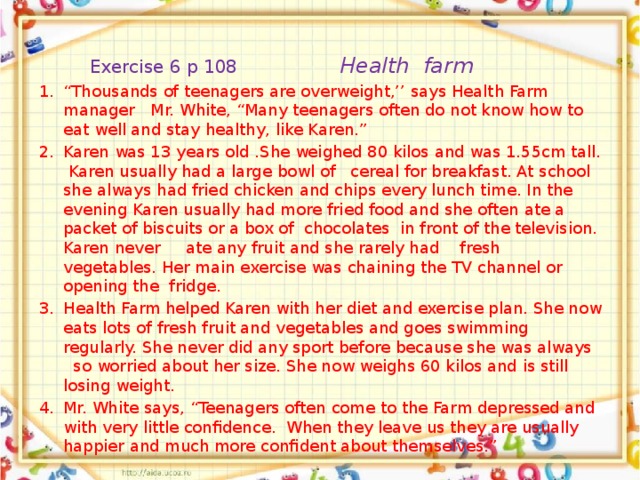
Exercise 6 p 108 Health farm
- “ Thousands of teenagers are overweight,’’ says Health Farm manager Mr. White, “Many teenagers often do not know how to eat well and stay healthy, like Karen.”
- Karen was 13 years old .She weighed 80 kilos and was 1.55cm tall. Karen usually had a large bowl of cereal for breakfast. At school she always had fried chicken and chips every lunch time. In the evening Karen usually had more fried food and she often ate a packet of biscuits or a box of chocolates in front of the television. Karen never ate any fruit and she rarely had fresh vegetables. Her main exercise was chaining the TV channel or opening the fridge.
- Health Farm helped Karen with her diet and exercise plan. She now eats lots of fresh fruit and vegetables and goes swimming regularly. She never did any sport before because she was always so worried about her size. She now weighs 60 kilos and is still losing weight.
- Mr. White says, “Teenagers often come to the Farm depressed and with very little confidence. When they leave us they are usually happier and much more confident about themselves.”
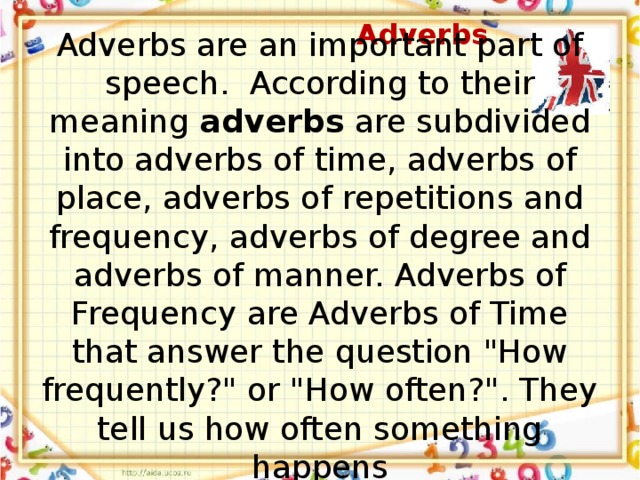
Adverbs
Adverbs are an important part of speech. According to their meaning adverbs are subdivided into adverbs of time, adverbs of place, adverbs of repetitions and frequency, adverbs of degree and adverbs of manner. Adverbs of Frequency are Adverbs of Time that answer the question "How frequently?" or "How often?". They tell us how often something happens

Adverbs describe verbs. They show us how, how often, when someone does something.
Adverbs usually go after verbs.
E.g. I usually wake up at 8 o’clock.
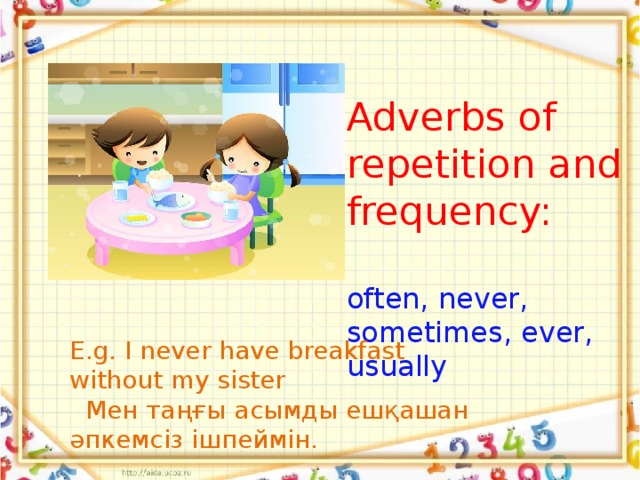
Adverbs of repetition and frequency: often, never, sometimes, ever, usually
E.g. I never have breakfast without my sister
Мен таңғы асымды ешқашан әпкемсіз ішпеймін.

Adverbs of frequency tell us how often something happens:
These are: Always- (100%) - әрқашан
Usually- (75%)- әдетте
Often- (50%) - Жиі
Sometimes- (25%)- кейде
Seldom- (10%)- анда- санда
Never- (0%)- ешқашан
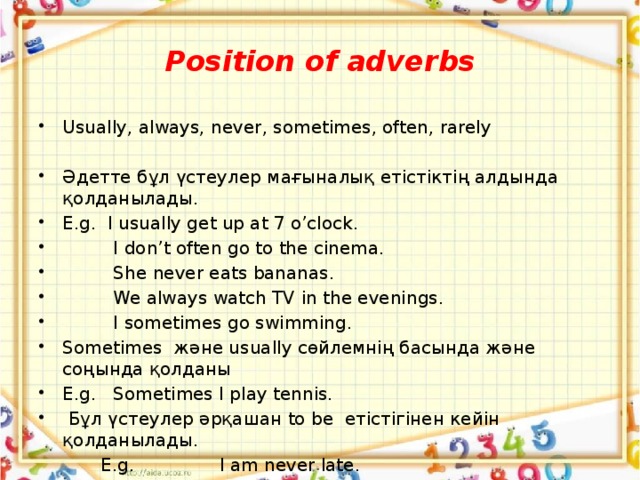
Position of adverbs
- Usually, always, never, sometimes, often, rarely
- Әдетте бұл үстеулер мағыналық етістіктің алдында қолданылады.
- E.g. I usually get up at 7 o’clock.
- I don’t often go to the cinema.
- She never eats bananas.
- We always watch TV in the evenings.
- I sometimes go swimming.
- Sometimes және usually сөйлемнің басында және соңында қолданы
- E.g. Sometimes I play tennis.
- Бұл үстеулер әрқашан to be етістігінен кейін қолданылады.
E.g. I am never late.
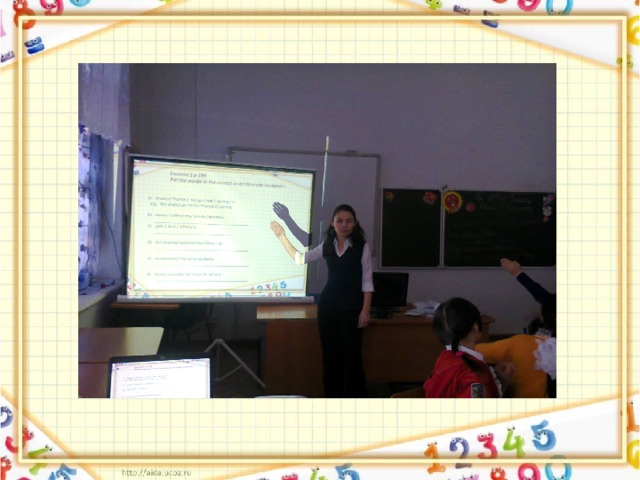
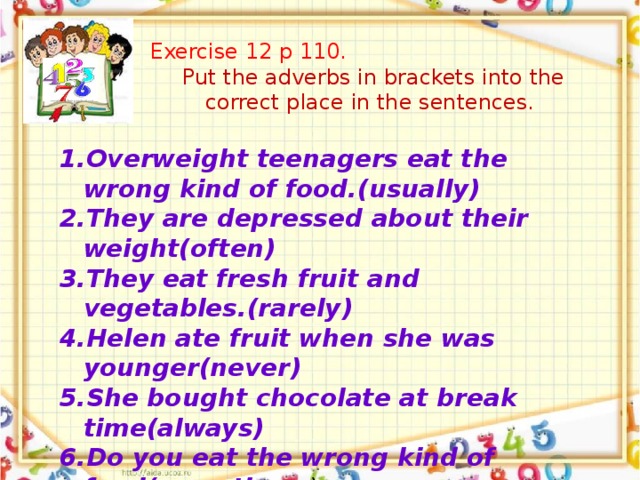
Exercise 12 p 110.
Put the adverbs in brackets into the correct place in the sentences.
- Overweight teenagers eat the wrong kind of food.(usually)
- They are depressed about their weight(often)
- They eat fresh fruit and vegetables.(rarely)
- Helen ate fruit when she was younger(never)
- She bought chocolate at break time(always)
- Do you eat the wrong kind of food(sometimes )

Let’s have a rest
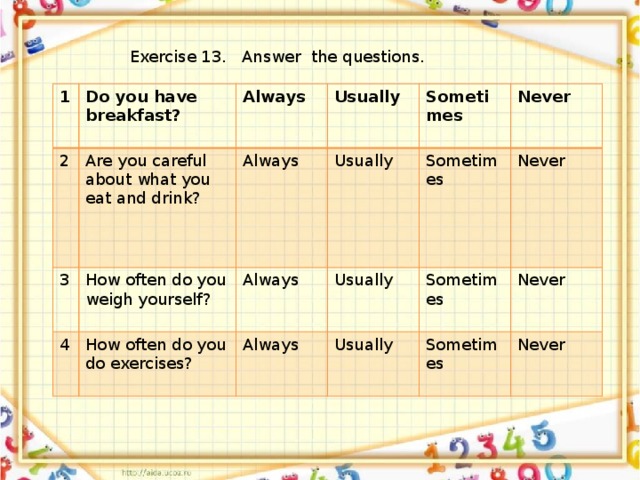
Exercise 13. Answer the questions.
1
Do you have breakfast?
2
Always
Are you careful about what you eat and drink?
3
Usually
4
How often do you weigh yourself?
Always
How often do you do exercises?
Always
Usually
Sometimes
Sometimes
Never
Usually
Always
Never
Sometimes
Usually
Never
Sometimes
Never
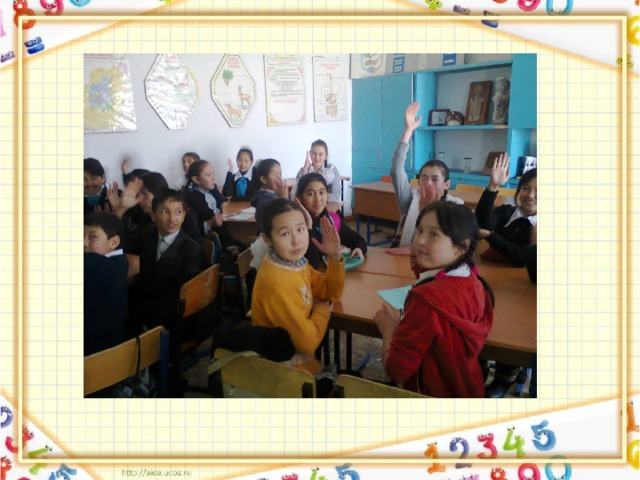
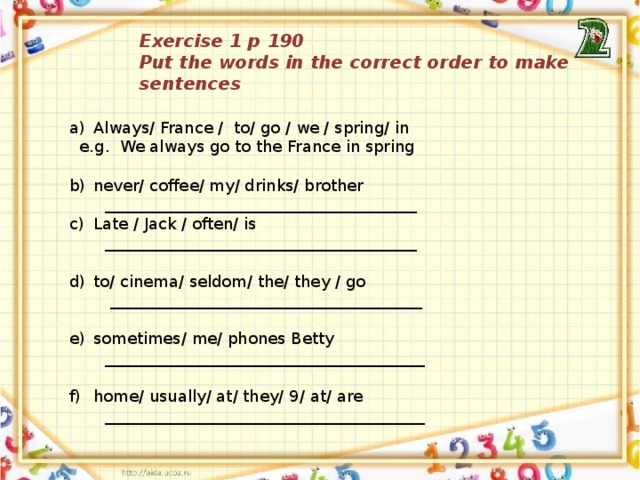
Exercise 1 p 190
Put the words in the correct order to make sentences
- Always/ France / to/ go / we / spring/ in
e.g. We always go to the France in spring
- never/ coffee/ my/ drinks/ brother
_______________________________________
_______________________________________
- to/ cinema/ seldom/ the/ they / go
_______________________________________
- sometimes/ me/ phones Betty
________________________________________
- home/ usually/ at/ they/ 9/ at/ are
________________________________________

Pick up Two - Adverbs of Frequency
Matching game.
Beginnings Endings
They usually go abroad . ...her friends after work.
Jennie usually meets... ...the radio
We seldom listen to ...for their summer holiday
Sam sometimes plays... ...a T-shirt and shorts.
He never has... ..leaves at 8 o’clock.
My wife and I always watch... ...a movie at the weekend.
He always wears... ...eggs for breakfast.
The bus usually... ...badminton on Sundays.
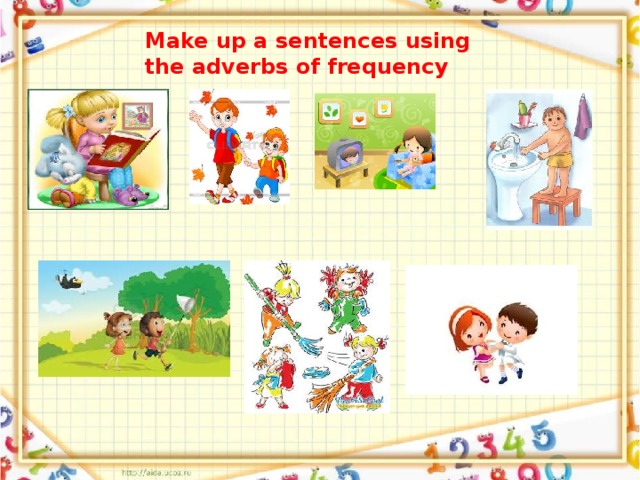
Make up a sentences using the adverbs of frequency
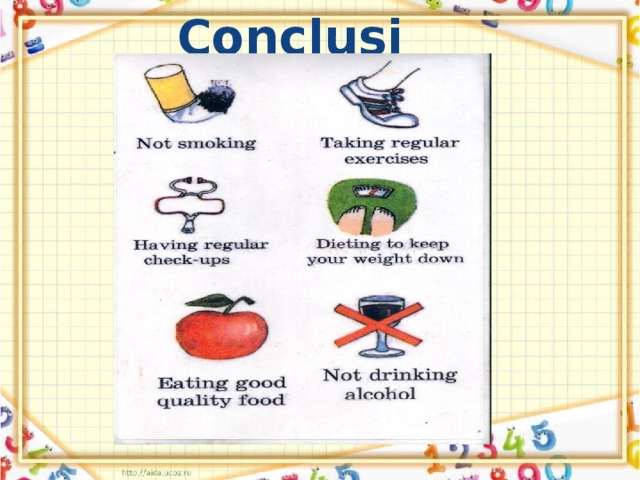
Conclusion
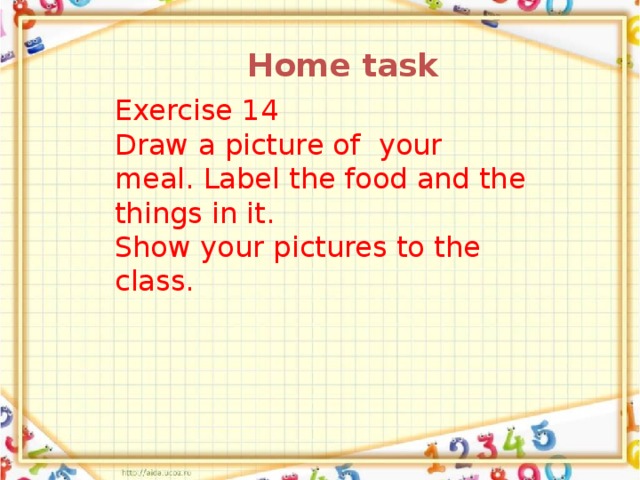
Home task
Exercise 14
Draw a picture of your meal. Label the food and the things in it.
Show your pictures to the class.





















































